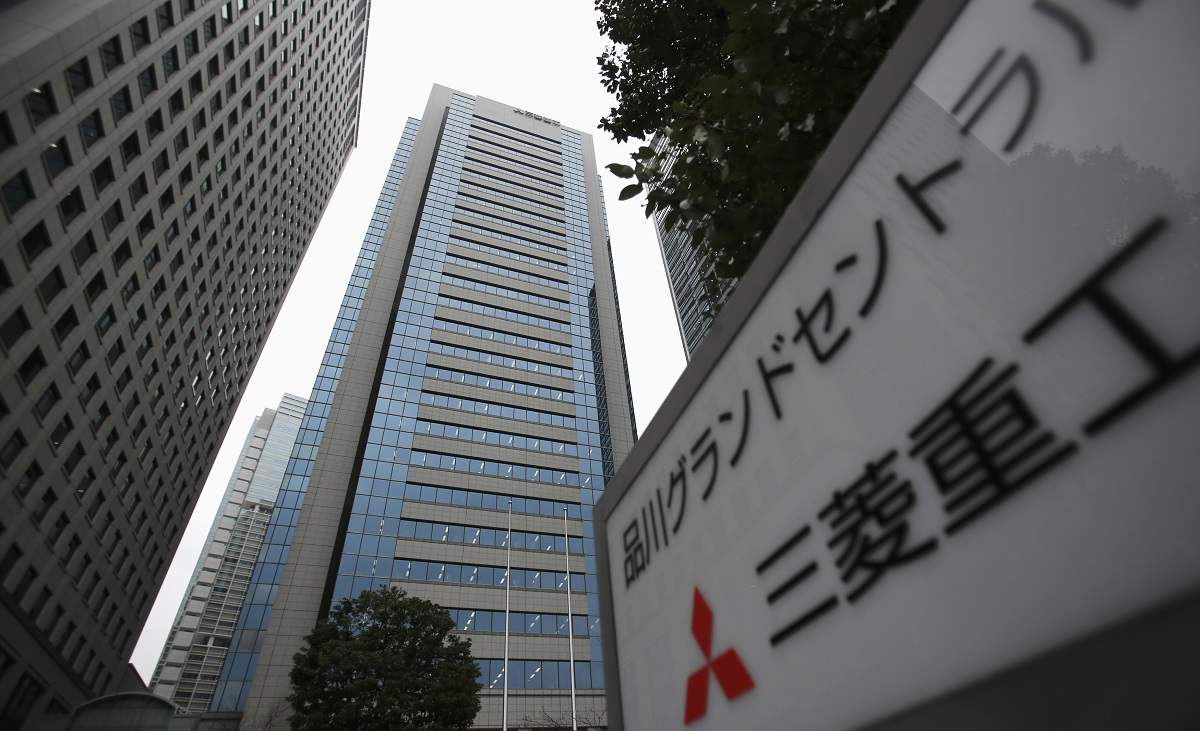Japanese Defense Contractor Companies Expand Workforce; Capital Investments Also Increasing Due to Government Policy

Mitsubishi Heavy Industries’ headquarters building
13:45 JST, January 14, 2024
Defense contractor companies, such as heavy industry firms and electronic machinery makers, which manufacture fighter jets, ships and missiles, among other things, are expanding their workforce and capital investments in the field.
For a long time, it had been a hurdle for these companies to make a profit since profit margins from sales of defense-related products have been low.
However, the government has laid out a policy of increasing spending for defense purposes during a five-year period starting this fiscal year. Therefore, the companies are aware that they will have more opportunities than before to receive orders.
On Dec. 26, IHI Corp. unveiled a plan to increase its workforce in its defense equipment division by 1.5-fold to 850 workers by fiscal 2025.
According to IHI, the increase aims to enhance its capability of developing engines of next-generation fighter jets which will be jointly developed by Japan, Britain and Italy.
IHI aims to secure necessary staff in the workforce by recruiting experienced workers from other companies and transferring its employees from other divisions.
Mitsubishi Heavy Industries Ltd. also considers increasing the number of its employees in the defense-related divisions by 20% to 30% from the current number of about 7,000.
Mitsubishi Electric Corp., which develops and manufactures radars and other equipment, will gradually increase the number of workers in its defense and space divisions by about 1,000, and implement ¥70 billion worth of capital investments.
In order to strengthen defense capabilities, the government plans to increase its defense budget during a five-year period starting in fiscal 2023 to about ¥43 trillion.
It is expected that orders to defense contractors and related companies will increase, and thus these companies will feel an increasing sense of urgency for production.
Mitsubishi Heavy Industries President Seiji Izumisawa said, “We cannot meet the demands unless we secure management resources, including human resources, and prepare enough workers, including those for architectonics.”
Defense equipment manufacturers have struggled with low profit margins, and thus there were many companies which ended up withdrawing from the industry.
Starting this fiscal year, the Defense Ministry has conducted various efforts including the introduction of a system in which companies will be able to secure up to 15% in profit margins.
Top Articles in Business
-

Prudential Life Insurance Plans to Fully Compensate for Damages Caused by Fraudulent Actions Without Waiting for Third-Party Committee Review
-

Narita Airport, Startup in Japan Demonstrate Machine to Compress Clothes for Tourists to Prevent People from Abandoning Suitcases
-

Japan, U.S. Name 3 Inaugural Investment Projects; Reached Agreement After Considerable Difficulty
-

Toyota Motor Group Firm to Sell Clean Energy Greenhouses for Strawberries
-

SoftBank Launches AI Service for Call Centers That Converts Harsh Customer Voices into Softer Voices
JN ACCESS RANKING
-

Japan PM Takaichi’s Cabinet Resigns en Masse
-

Japan Institute to Use Domestic Commercial Optical Lattice Clock to Set Japan Standard Time
-

Israeli Ambassador to Japan Speaks about Japan’s Role in the Reconstruction of Gaza
-

Man Infected with Measles Reportedly Dined at Restaurant in Tokyo Station
-

Videos Plagiarized, Reposted with False Subtitles Claiming ‘Ryukyu Belongs to China’; Anti-China False Information Also Posted in Japan






















